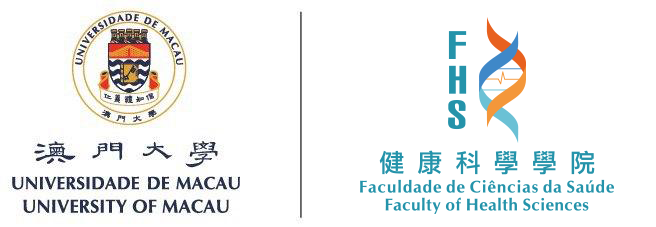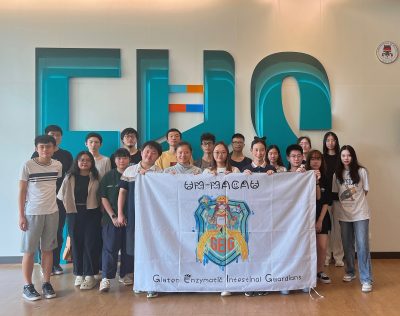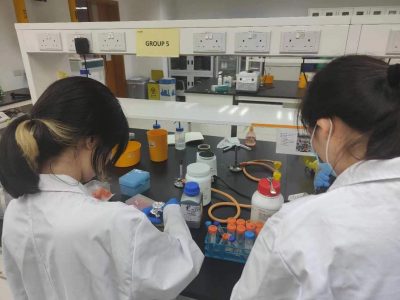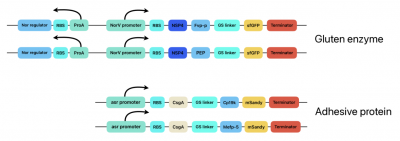A team of students from the Faculty of Health Sciences (FHS) and the Faculty of Sciences and Technology (FST) of the University of Macau are preparing for the 2023 International Genetically Engineered Machine (iGEM) competition. This will be the 5th time that UM participates in this worldwide synthetic biology competition. Under the guidance of FHS Associate Professor Leo Tsz On LEE and Professor Garry WONG, the team is preparing their research project with the objective to find a solution that can contribute to the betterment of patients with celiac disease (CD) or known as gluten-sensitive autoimmune disease.
Celiac disease (CD) is one of the most common autoimmune gluten tolerance diseases. It occurs in genetically susceptible children and adults, and is prompted by the ingestion of gluten-containing foods. For CD patients, their quality of life is affected in the long term, and they are at increased risk of developing other diseases and conditions, including chronic diarrhea alternating with constipation, reduced appetite, malabsorption, stunting in children, iron deficiency anaemia, osteoporosis, herpetic dermatitis, and cancer. Current treatment options include lifelong gluten-free diets and oral enzyme therapy. Yet, the highly restrictive nature of the diet causes great inconvenience to the patients, and the long-term consumption of gluten-free foods is exorbitant. Furthermore, oral enzyme therapy is still immature. All these current treatment options result in a significant reduction in efficacy.
In this regard, the UM iGEM team aims to establish a genetically engineered bacterium based enzyme delivery system that releases prolyl endopeptidases through probiotics under the control of nitric oxide sensors as an alleviator of inflammatory-like environmental factors in the CD intestine. Moreover, the modified bacteria also contain an adhesion system to enhance their interaction with intestine epithelia cells and hence increase the treatment efficiency. After the colonization of the adhesion protein, the NorR regulatory protein and the PnorV activator are used to sense the change of NO in the intestines and express the 33-mer peptidase, which is difficult to be broken down by the body, to eliminate the cause of the disease. The team will conduct a computer modeling test to predict the colonization on human mucus layers and efficiency of engineered bacteria in gluten digestion, select the appropriate strains of probiotics, and set the population density control system of probiotics based on quorum sensing and quorum quenching phenomena to complete the safety module.
The International Genetically Engineered Machine (iGEM) is an international synthetic biology competition founded by the Massachusetts Institute of Technology (MIT) in 2003, and is considered one of the largest and most influential synthetic biology competitions in the world. By participating in the iGEM Competition, students gain not only knowledge of synthetic biology, but also the experience in completing projects and using the principles and techniques of synthetic biology to design and build biological systems that solve real-world problems.




